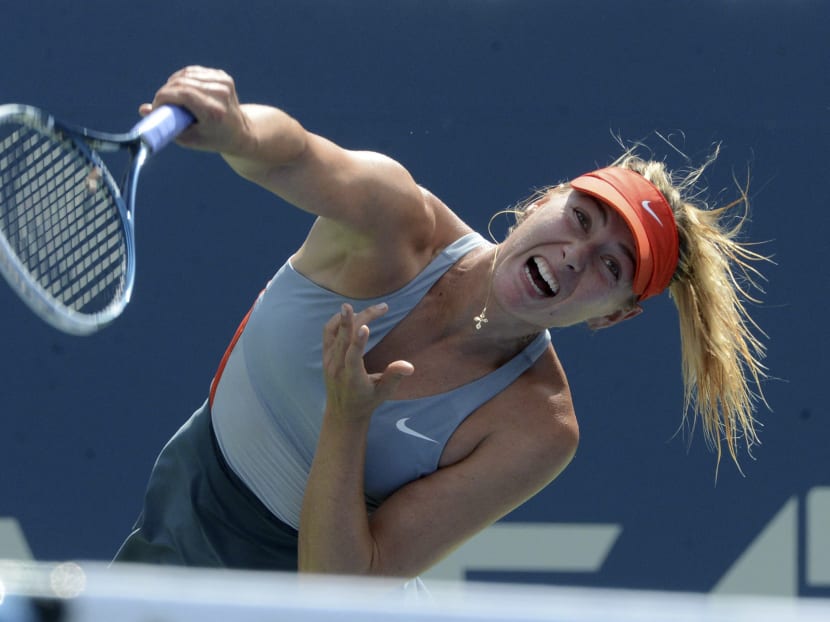Sharapova to resume career in April after doping ban is cut
Lausanne (Switzerland) — Maria Sharapova had her two-year tennis ban for doping reduced to 15 months by the Lausanne-based Court of Arbitration for Sport (CAS) on Tuesday (Oct 4).

Maria Sharapova of Russia during a fourth-round women's singles match against Caroline Wozniacki of Denmark in Arthur Ashe Stadium at the U.S. Open tennis tournament in New York, Aug. 31, 2014. Photo: The New York Times
Lausanne (Switzerland) — Maria Sharapova had her two-year tennis ban for doping reduced to 15 months by the Lausanne-based Court of Arbitration for Sport (CAS) on Tuesday (Oct 4).
The 29-year-old Russian tested positive for the banned medication meldonium during January’s Australian Open, but the world’s top sports court cut the initial two-year ban by nine months. The CAS “found that Sharapova committed an anti-doping rule violation and that while it was with ‘no significant fault’, she bore some degree of fault, for which a sanction of 15 months is appropriate”.
Sharapova openly admitted she had been taking meldonium for 10 years to help treat illnesses, a heart issue and a magnesium deficiency.
She also claimed it had entirely escaped her attention that the product had been added to the banned substance list published by the World Anti-Doping Agency on Jan 1, just before the Australian Open.
The initial ban was imposed by an independent tribunal appointed by the International Tennis Federation (ITF) and the reduced ban following her appeal means she will be free to resume competition at the end of April.
In June, a disciplinary panel appointed by the ITF accepted Sharapova’s claim that the violation had been accidental, a finding that spared her from a suspension of up to four years.
Appealing to the sports arbitration court — the final authority on global sports disputes — Sharapova argued last month that tennis officials had not done enough to publicise the change and that two years was a disproportionately harsh penalty.
“This was an honest administrative mistake,” John Haggerty, a lawyer for Sharapova, said. “There was no intent to cheat.” AGENCIES





